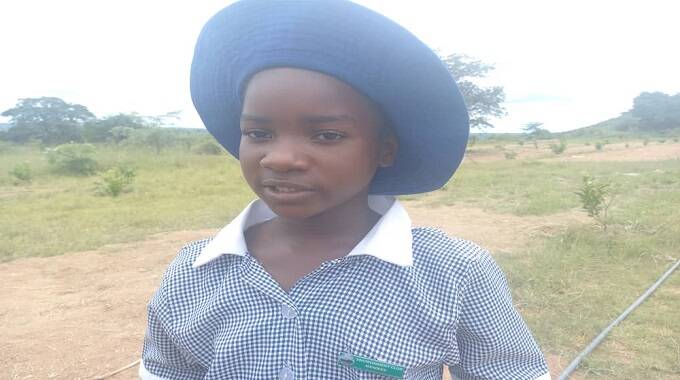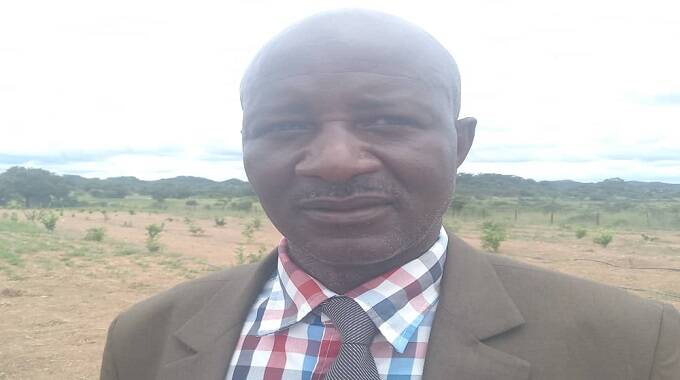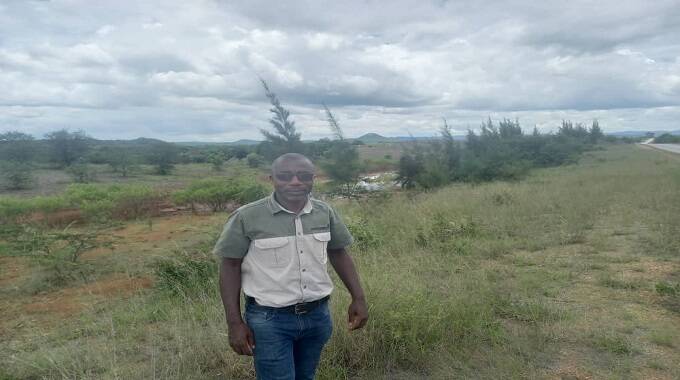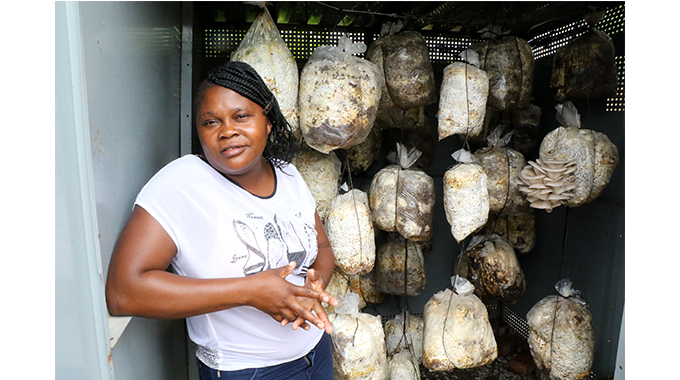Forestry Commission project to benefit communities

Patrick Chitumba, Midlands Bureau Chief
FOR years, farmers along Shurugwi-Zvishavane Road have not known peace since chrome deposits were discovered in plots and farms along the highway.
The chrome miners are posing a threat to the highway and the lives of animals due to unplanned extraction of the mineral.
When there was a surge in chrome prices on the world market, there was an increase in the extraction of the mineral along the road, a development that has seen excavators and front-end loaders being used by miners just a few metres from Shurugwi-Zvishavane Road.
The miners are failing to employ safe mining methods resulting in damage to road infrastructure and hazards to motorists. Government has since ordered the chrome miners to stop mining.

Ednah Ganda
However, along the Great Dyke there are thousands of unclaimed pits that are a danger to humans and livestock.
The pits, which have left a trail of destruction on the environment, are a result of the scramble for minerals such as gold by miners.
Government through the Forestry Commission (FC) is now rolling out the mine dump reclamation or restoration programme and green schools project.
Under the green schools project, schools are given fruit trees for orchards and agroforestry projects and fast-growing exotic trees for windbreaks and ornamental trees for beautification purposes.
Communities are anticipating huge returns from the programme. One such community is Mapanzure in Zvishavane District.
The agroforestry is a practice of mixing agricultural crops and trees for the purpose of having maximum utilisation of land, and soil and water conservation.
Usually, there are selected crops depending on the objectives, and in this case, Government, through the Forestry Commission, is focusing on soil conservation and nutrient cycling.
The objective is to grow fruit trees such as oranges, naartjies, and apples and in between the trees, crops such as beans and ground nuts.
With 2 hectares having been put under citrus at Lundi Primary School in Mapanzure, the community has embraced the green schools energy programme through an agroforestry project.
Lundi Primary School headmaster Mr Ephraim Siwawa said last year they managed to produce onions which were grown between orange trees.
“We are very glad to be part of this programme that preserves the environment. What is interesting is that we are looking forward to these fruit trees ripening so that we can start to realise income,” he said.
“As a rural school, our main challenge is that most learners can’t afford school fees and as such, we end up relying on projects for school development.”

Mr Ephraim Siwawa
Godlove Nyoni, a learner at Lundi Primary School, said that they have been empowered through this project.
“This orchard has become a source of income for the community. We engage parents to guard the place and hence the project becomes profitable. We are being taught this so that we can practise it once we finish our school work,” he said.
Another learner, Ednah Ganda said: “From my studies, I learnt an important lesson that we need trees in most aspects of our lives. With trees we get oxygen and as such we appreciate such projects which help us.”
Provincial Forestry Commission manager for Midlands, Mr Rodrick Nyahwayi said the forest restoration programme on mine dumps is where they are planting fast-growing species to recover the forest cover, create carbon sinks, and purification of contaminated soils.
“The green schools project is where we are establishing orchards, agroforestry projects, windbreaks and ornamental trees like what has happened at Lundi Primary School in Zvishavane,” he said.
Mr Nyahwayi said they also have the tobacco wood energy programme where they are planting fast growing tree species for firewood for tobacco farmers.
“We are also establishing green belts on grasslands for fire management purposes. The green schools project has seen over 30 schools embracing it in the province,” he said.
Mr Nyahwayi said they plant pod-bearing trees such as leucaena, sesbania and faiderbia.
“These are all nitrogen-fixing plants, which absorb nitrogen from the atmosphere and fix it in the soil. The trees also provide a canopy cover that reduces raindrop speed and avoids erosion,” he said.
“They also provide partial shade and reduce evaporation from the soil and thus soil moisture conservation.”
Mr Nyahwayi said the reforestation and gully reclamation programmes are starting to bear fruits.
“We, however, call upon mining companies to play a significant role in these reforestation efforts. The mining activities are largely responsible for the degradation and as such should be at the forefront in correcting the problem,” he said.
Mr Nyahwayi said nearly 1 000 hectares have been destroyed due to illegal mining activities in the province.
He said along Shurugwi-Zvishavane Road, they have planted over 5 000 trees covering 5 hectares.

Mr Rodrick Nyahwai
“What we have done so far around the Ruchanyu area is land reclamation only, of which we are still trying to bring in miners to assist. For reclamation, we tried 10 species and the research was done in conjunction with Midlands State University (MSU) Natural Resources Management Department,” said Mr Nyahwayi.
He said in the long run, the project will result in the purification of the soil from toxins from chemicals used in mining.
“It’s also a phytoremediation project where trees will eventually purify the soils from toxins caused by exposed heavy metals,” said Mr Nyahwayi.
He said they are also establishing agroforestry at homesteads to increase the livelihoods base for the communities.
“We have planted over 20 000 avocado trees in the province since 2018 and all these programmes are directed by the office of the Minister of State for Midlands Provincial Affairs and Devolution,” said Mr Nyahwayi.
He said mines such as Unki Mines and Mimosa Mining Company are assisting with resources and trees for the reclamation programme.
In the long run, he said they are expecting each miner benefiting in the area to make a contribution of at least 5 000 trees towards the worthy cause.
A Shurugwi farmer, Mr Maxwell Ncube lauded the Government for leading in the reclamation of gullies in his area.
“For years as farmers along the Shurugwi-Zvishavane Highway, we had no peace since chrome deposits were discovered along the highway. Our livestock fell into the pits and one boy died last year after falling into an abandoned pit, hence we are grateful for this programme,” he said.
Under the National Development Strategy 1 (NDS1), Government has set a target of 45 percent forest cover of wooded land by 2025. Presently it is at 32 percent.










Comments